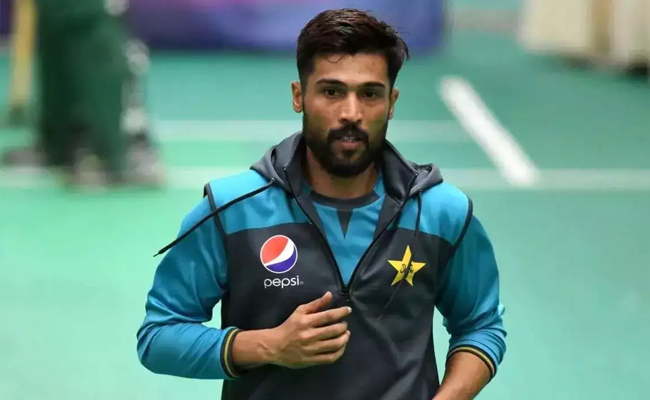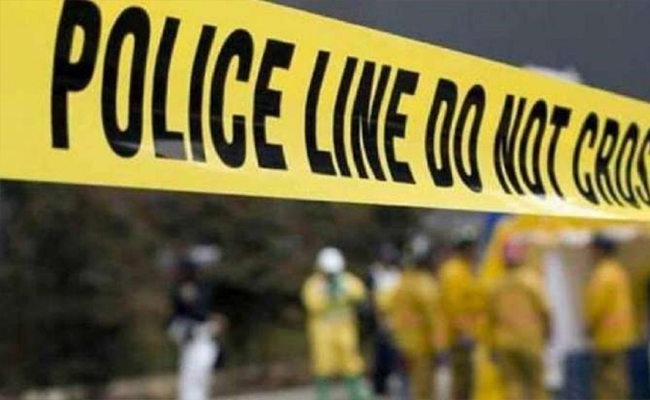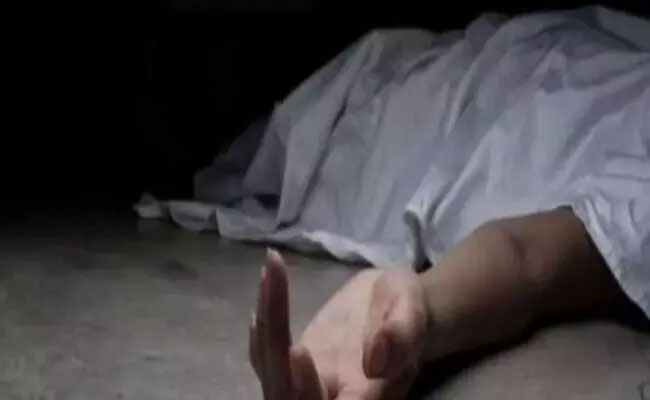Karachi (PTI): Controversial Pakistan left-arm pacer Mohammad Amir bid adieu to international cricket on Saturday, months after coming out of retirement to play in the T20 World Cup.
Amir, who was banned from cricket for five years between 2010 and 2015 on spot-fixing charges and was briefly jailed for his crime, had retired from all forms of international cricket in 2020.
However, he changed his mind and returned to play in T20 World Cup earlier this year.
"After careful consideration, I have taken the difficult decision to retire from international cricket. These decisions are never easy but are inevitable. I feel this is the right time for the next generation to take the baton and elevate Pakistan Cricket to new heights!" he wrote on his social media handles.
"Representing my country has been and always will be the greatest honour of my life. I would sincerely like to thank the PCB, my family and friends and, above all, my fans for their continuous love & support," he added.
Amir had been involved in the infamous spot-fixing scandal that rocked the cricket world in 2010.
The pacer, who was 19 then, had deliberately over-stepped along with fellow quick Mohammed Asif at the behest of former skipper Salman Butt and they were all caught. All three were briefly jailed in the UK, where fixing is a crime but were later released.
The ICC banned them for five years between 2010 to 2015. Only Amir made a successful return to international cricket and was the hero of Pakistan's Champions Trophy triumph over India in 2017 in the UK.
A key member of Pakistan's team over the years, he featured in 36 Tests, 61 ODIs and 62 T20Is since making his international debut in June 2009.
He took 271 international wickets and scored 1,179 runs across the three formats and was a part of the the 2009 ICC T20 World Cup-winning side.
The announcement comes a day after all-rounder Imad Wasim decided quit international cricket.
Both Amir and Wasim came out of retirement earlier this year after being assured of selection for the tours of Ireland and England, as well as the World T20 Cup, by the board and its selectors, who believed the two could help Pakistan perform well in these assignments.
Unfortunately, that didn't materialise, and neither has he been picked by the national selectors for any of the matches since the World Cup.
Amir's final outing in Pakistan colours came in June this year during the T20 World Cup against Ireland in Lauderhill, USA.
In 2020, Amir announced a dramatic end to his international cricket career, alleging that he has been "mentally tortured" by his national board's management.
Let the Truth be known. If you read VB and like VB, please be a VB Supporter and Help us deliver the Truth to one and all.
Thane (PTI): Two minor girls were rescued after a prostitution racket was busted in Navi Mumbai, a police official said on Monday.
On a tip off about one Harish running a flesh trade racket, the Navi Mumbai Crime Branch started a probe on February 20, the official said.
"A decoy customer was sent to verify the information, following which a trap was laid in front of a hotel in Sector 11. The Anti Human Trafficking Cell nabbed Harish Vikas Chhari, a resident of Koparkhairane, while his associate Raj Singh is on the run. Two minor girls were rescued," the CBD Belapur police station official said.
A case has been registered under Bharatiya Nyaya Sanhita, Immoral Traffic (Prevention) Act, and Protection of Children from Sexual Offences (POCSO) Act, the official added.





